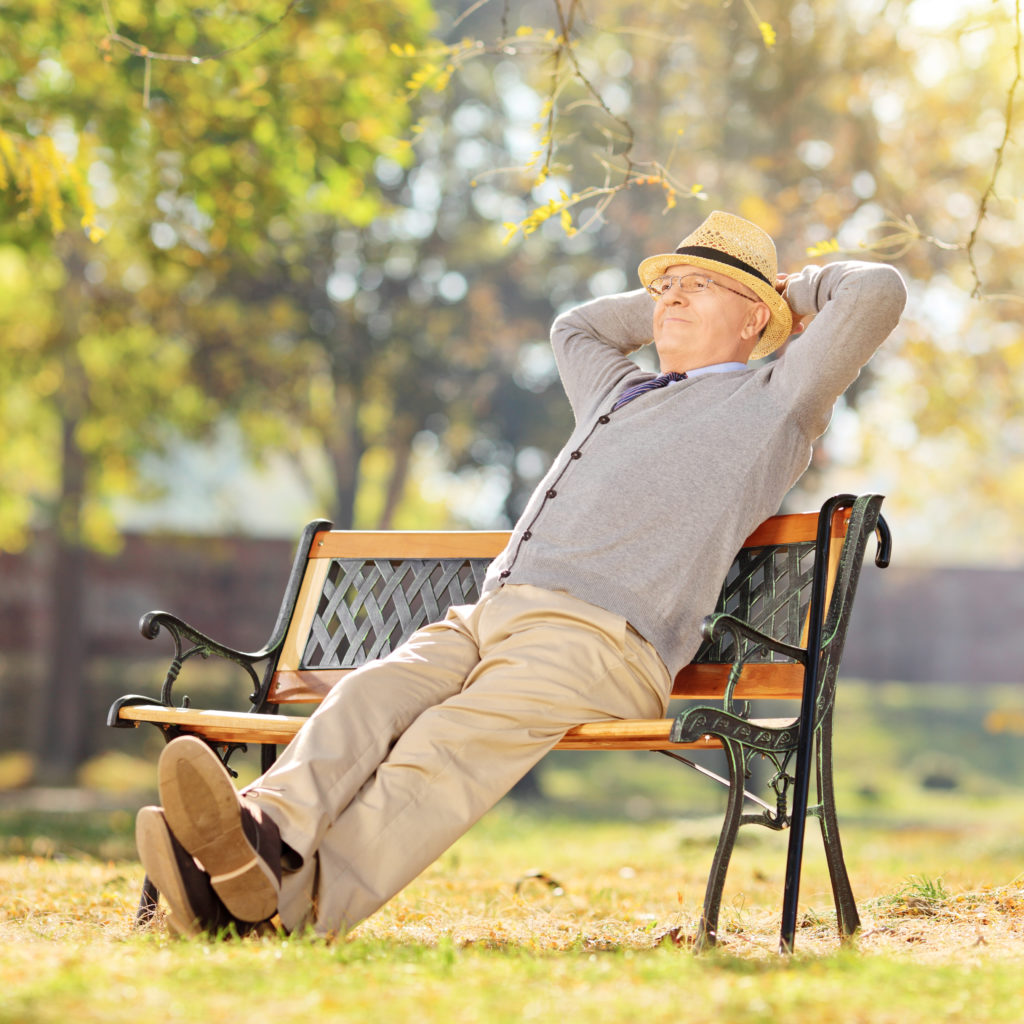Constant complaining, stubborn refusal to eat, and frustration over normal sounds and activities in the home. These are some hallmark behaviors associated with humans as we age, and they hit particularly close to home for those who have earned the reputation of “grumpy old men.”
If you have a parent or loved one who is indeed “grumpy”, it’s important that you understand what medical science has to say about their mood swings, sadness, and physical discomfort.
According to the Mayo Clinic, after 40 years of age, a man’s testosterone level drops by 1% per year. This tends to decrease energy levels, disrupt sleeping patterns, and can negatively affect their moods. The same can be said of women, who go through menopause and struggle with hormonal changes that can leave them feeling blue. Hormonal changes play a huge role in how we all feel and interact with the people around us.
The decrease in testosterone levels is not the only cause of grumpy old man syndrome. There are many additional factors at play. It’s important that you take time to understand the factors behind it all, which we’ll explore in the following paragraphs:
#1 - Physical Limitations
A human being’s age can catch up with them as they grow older. The desire to be as active as they were when younger may leave them feeling sidelined, as some of their friends and family members enjoy activities they love like jogging, playing golf, swimming in the ocean, and more.
Nagging issues such as backaches, blurry vision, hearing loss, and forgetfulness can set in. Also, the immune system can weaken, making them more susceptible to infections. Their physical ailments lead to medicinal prescriptions with side effects that leave them feeling far from who they were when younger.
#2 - Hormonal Changes
As mentioned above, hormonal issues play a huge role in the equation. With ample time to ponder their former lives and sagging hormone levels leaving them feeling blue, it’s common for emotional outbursts that leave everyone around them wondering what’s going on.
And of course, hormone fluctuations can cause issues like baldness, erectile dysfunction, excessive weight gain or loss, and joint pains. Thus, it’s important for us all to have patience with them and if possible get to the root of the issue where hormonal imbalances are concerned. A hormone specialist may be able to help ease their feelings of mental and bodily discomfort.
#3 - Significant Lifestyle Changes
Acceptance can be hard as we all age. Sometimes it’s hard to accept the changes that have occurred around your loved one. The ever-changing world can be overwhelming, and it can be quite painful to lose friends and loved ones. Also, the loss of career and purpose in life can be a doozy for those who thrived on giving back to society.
And then there are environmental changes — if they are forced to move from a home they loved, they may try hard to adapt, but it can all be quite difficult for them. Losing one’s freedom to choose when, where, and how to live can be quite depressing.
#4 - Adapting to the Modern World
There are some aging men and women who thrive on new technologies and the emerging world, and there are some who can’t stand it.
They may put forth a valiant effort to adapt and learn new skills, such as how to use the latest and greatest cell phone and apps like WhatsApp or Zoom, but when they are faced with technical difficulties, it can make them quite agitated and grumpy.
They may feel that the modern world leaves them outdated and their old methods for living a lost cause. Resistance in moving forward and accepting what is in the present moment can leave them angry and depressed.

#5 - Depression in Retirement Homes
If your elderly parents or relatives are living in a retirement home and are often in a terrible mood when you visit them, it’s very possible they are unhappy where they are. They may be tired of trying to be overly polite to their caretakers, sick and tired of the bland food, and sad that their family members aren’t visiting more often. Moreover, they probably miss their home.
Retirement homes can be difficult for almost anyone to stomach — they can feel disorienting, dark, and lonely. We human beings are magnets for energy (even as we age), so it’s important to consider the energy of a home environment when seeking out a place for mom or dad.
#6 - Yearning for Their Departed Loved Ones
We touched on this a bit above, but it’s safe to say that seniors in their sixties, seventies, and eighties have experienced numerous ups and downs over their lifetimes. They have also laid to rest their friends, spouses, and even children.
Grief for the loss of loved ones can leave anyone feeling sad, frustrated, and depressed. Yearning for loved ones is a normal part of life and aging. This is something we all need to understand, and even consider inspiring our parents to join a grief group or get counseling to talk their feelings through.
It’s vital that we all understand that aging men and women need just the same support that the younger generations require. Failing to support them may result in more grumpiness.
How to Best Inspire and Care for a Grump Old Loved One
As you show love and support to an aging human, it’s important to understand that there are proactive steps you can take to help them feel better about life. The following steps may help guide you along the way:
#1 - Assess the Problem
The first step in dealing with a grumpy old loved one is to get to the bottom of why they’re feeling blue and frustrated. Could it be their hormone levels, lack of exercise, or depression? Are they feeling as though they aren’t getting support from their loved ones? Do they need to see a doctor or a naturopath?
Asking the right questions and finding answers is the first step!
#2 - Consider Their Feelings
Sometimes we all think we have all the answers. We have triggers associated with our aging loved ones and allow them to rule our communications with them. If there is to be any improvement, we need to wipe the slate clean the best we can and listen to the root of their discomforts in life.
And sometimes, we have to understand we may not have the answers they need. Employing a therapist or mediator they like and trust can lead to progress.
They need to feel heard and understood and not always told how they should be feeling and acting.
#3 - Find Proactive Solutions
Depending on the issue at hand, the beauty of the situation is that there may be some positive changes that need to be made. Maybe their living situation is unbearable, or the food they’re eating isn’t nourishing enough, or they need to exercise a little each day.
Or, possibly they need to see a hormone specialist or nutritionist that can help them feel better inside their bodies.
If they can travel, perhaps a change of scenery and an adventure can lead them to new thought patterns and help them rediscover their spark.
The possibilities are endless, and if you can help your aging loved ones to see this rather than being mired in darkness, you never know what can happen.

#4 - Don’t Take Their Grumpiness Personally
It’s not easy dealing with a grumpy aging human, especially when they are family. However, it’s essential that you don’t take it personally. As mentioned above, the key is to think out-of-the-box and find proactive solutions.
Rise above the grumpiness to find a new mode of operation and thought.
You can do it!



Leave a Reply